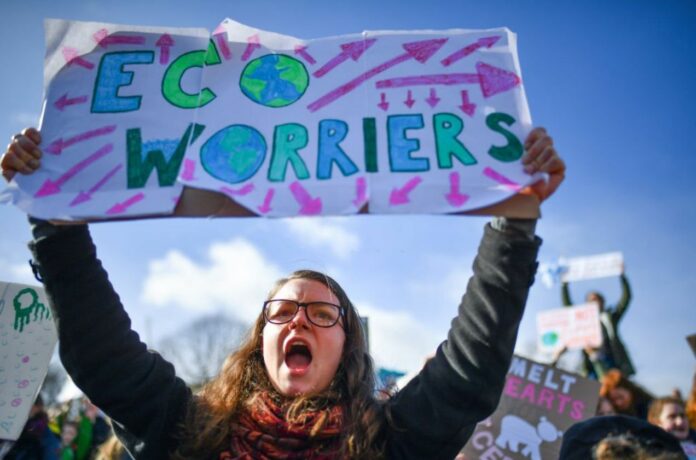A new study from the Universitat Hamburg’s Cluster of Excellence “Climate, Climate Change, and Society” – in short CLICCS shows that limiting global warming to 1.5 degrees Celsius is not possible right now.
The researchers rigorously evaluated the degree to which societal shifts are already under way, focusing on climate policy, demonstrations, and the Ukraine issue, while also evaluating several physical processes sometimes referred to as tipping points.
They came to the conclusion that societal change was necessary to achieve the Paris Agreement’s temperature targets. But what has already been accomplished is inadequate. So, adapting to climate change will also have to be done differently.
The researchers from different fields looked at ten important factors that cause social change: “Actually, when it comes to climate protection, some things have now been set in motion,” remarks CLICCS Speaker Prof. Anita Engels.
“But if you look at the development of social processes in detail, keeping global warming under 1.5 degrees still isn’t plausible.”
The Hamburg Climate Futures Outlook indicates that business actions and consumer habits, in particular, are delaying the urgently required climate protection measures.
Efforts to achieve the climate objectives are also bolstered by other important elements, such as the United Nations’ climate policy, legislation, climate protests, and divestment from the fossil fuels.
However, as the research demonstrates, this beneficial dynamic by itself won’t be enough to keep under the 1.5-degree limit. According to Engels, “the deep decarbonization required is simply progressing too slowly.”
The team also looks at some physical processes that are often talked about as tipping points. For example, the loss of Arctic sea ice and melting ice sheets are both serious changes, as are changes in regional climate.
However, until 2050, they won’t have much of an impact on the earth’s temperature. In this way, the melting of permafrost, the weakening of the Atlantic Meridional Overturning Circulation (AMOC), and the loss of the Amazon Forest are more important, but not by much.
According to CLICCS Co-Speaker Prof. Jochem Marotzke of the Max Planck Institute for Meteorology, “the Fact is: these feared tipping points could drastically change the conditions for life on Earth – but they’re largely irrelevant for reaching the Paris Agreement temperature goals.”
The study also talks about COVID-19 and the Russian invasion of Ukraine: programs to rebuild the economy have made it more dependent on fossil fuels, making the changes needed less likely than was thought before.
On the other hand, it’s not clear if efforts to protect Europe’s power supply and make the world less dependent on Russian gas will slow down or speed up the long-term process of getting rid of fossil fuels.
Human agency, a fresh look at adaptation
At the moment, the Outlook is the only assessment that combines analysis from the social sciences and the natural sciences into a single study that looks at how likely different climate futures are. More than sixty professionals have contributed.
The study says that society’s ability to make big changes (“human agency”) is the best chance of making the climate better in the future. In addition, the Outlook indicates a variety of requirements that must be met in order to do this, such as the continuation of support for climate protection from non-governmental actors and transnational efforts, as well as the maintenance of political pressure via protests.
“The question of what is not just theoretically possible, but also plausible, that is, can realistically be expected, offers us new points of departure,” adds Anita Engels. “If we fail to meet the climate goals, adapting to the impacts will become all the more important.”
The Hamburg Climate Futures Outlook presents a new instrument for assessing the long-term consequences of different policies in this area. In order to be prepared for a warmer future, they must do more than just provide assistance when a crisis arises: “we have to anticipate changes, get the affected parties on board, and take advantage of local knowledge. Instead of just reacting, we need to begin an active transformation here and now.”
Source: 10.25592/uhhfdm.11230
Image Credit: Getty
